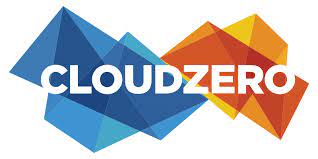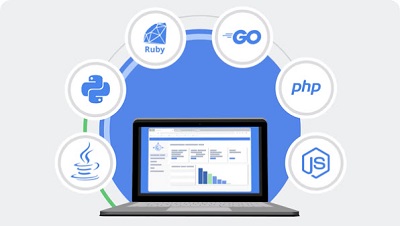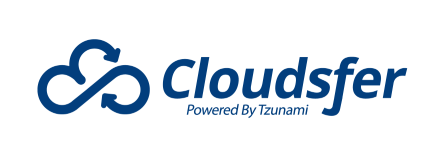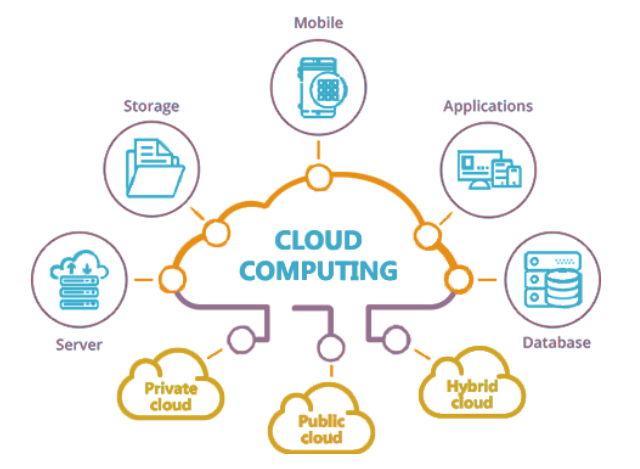Last Updated on
Cloud computing enables organizations to access IT resources over the internet on a pay-as-you-use basis. In this way, companies do not need to install and operate physical data centers. Rather, they can lease cloud computing resources such as AWS (Amazon Web Services) for storage, data analytics, and other IT-related services.
By using the best cloud computing tools, organizations can have access to resources while spending less to gain this access. Cloud computing has turned the 21st century into a cloud-first generation as many individual users now prefer storing their important documents in the cloud.
In this article, we will explore the best cloud computing tools and platforms in 2022.
1. Cloudzero
 Cloudzero allows SaaS (software as a service) companies to gain better visibility into their respective cloud usage and costs while lowering the amount spent on AWS and increasing their ROI. The platform helps its users align cloud costs to the people, features, and processes that generate them. It also provides a Migration Acceleration Program Dashboard, Budgets, and more. It is the total cloud computing intelligence platform.
Cloudzero allows SaaS (software as a service) companies to gain better visibility into their respective cloud usage and costs while lowering the amount spent on AWS and increasing their ROI. The platform helps its users align cloud costs to the people, features, and processes that generate them. It also provides a Migration Acceleration Program Dashboard, Budgets, and more. It is the total cloud computing intelligence platform.
2. AWS
 AWS is a widely popular cloud computing platform that offers more than 200 cloud computing services including storage, analytics, IoT (internet of things), database services, AI/ML (artificial intelligence/machine learning), and more. It has more than 33% of the total cloud infrastructure services market share. Also, the platform has infinite resources across the cloud spectrum, which is one of the reasons for its leading position in IaaS (infrastructure as a service).
AWS is a widely popular cloud computing platform that offers more than 200 cloud computing services including storage, analytics, IoT (internet of things), database services, AI/ML (artificial intelligence/machine learning), and more. It has more than 33% of the total cloud infrastructure services market share. Also, the platform has infinite resources across the cloud spectrum, which is one of the reasons for its leading position in IaaS (infrastructure as a service).
3. Google App Engine
 Google App Engine provides developers and organizations a platform for running, building, and hosting web applications. In a fully managed environment, the platform ensures no server management and configuration for a firm’s engineers and developers. It makes it easy to deploy resources using the PaaS (Platform as a Service) environment.
Google App Engine provides developers and organizations a platform for running, building, and hosting web applications. In a fully managed environment, the platform ensures no server management and configuration for a firm’s engineers and developers. It makes it easy to deploy resources using the PaaS (Platform as a Service) environment.
4. Cloudsfer
 If you plan to move to the cloud, Cloudsfer provides cloud-to-cloud and on-premises-to-cloud migration services. with Cloudsfer, you can migrate data and resources from several sources to more than 20 cloud storage services. It also has a backup tool that allows you to sync cloud services as well as an archiving tool to copy data from cloud storage and duplicate same locally.
If you plan to move to the cloud, Cloudsfer provides cloud-to-cloud and on-premises-to-cloud migration services. with Cloudsfer, you can migrate data and resources from several sources to more than 20 cloud storage services. It also has a backup tool that allows you to sync cloud services as well as an archiving tool to copy data from cloud storage and duplicate same locally.
5. Lacework
Lacework offers nonstop cloud compliance management and security at scale. That is, it enables you to collect, correlate, and analyze security information across several cloud platforms including Azure and AWS. This helps users to prioritize security threats and address them.
ALSO READ
- Cloud Storage Services – How to Select the Very Best
- 10 CRM Software and Tools To Boost Your Business in 2022
6. Kubernetes
 An open-source platform, Kubernetes is a platform that is used to deploy, manage and scale containerized applications. Its automated, self-healing rollouts and rollbacks, batch execution, and load-balancing capabilities make the tool well-suited to container management and orchestration at scale.
An open-source platform, Kubernetes is a platform that is used to deploy, manage and scale containerized applications. Its automated, self-healing rollouts and rollbacks, batch execution, and load-balancing capabilities make the tool well-suited to container management and orchestration at scale.
7. Carbonite
Carbonite provides data protection, backup, and migration services for businesses and families. The service replicates cloud, virtual, and physical workloads using push-button failover to guarantee critical systems are always available. Carbonite’s cloud backup service provides support for various environments, platforms, and devices including Oracle, MySQL, and Hyper-V.
8. Notion
Notion offers a knowledge base, collaboration tool, file-sharing platform, and workspace all in one product. Business teams can share knowledge, project, schedules, progress, and workflows while getting work done without combining multiple unrelated tools. Notion provides you with templates that you can modify as you go. It also offers note-taking capabilities, enabling users to record ideas, insights, and progress from team brainstorming sessions and meetings. You can also edit and share these notes with others on the platform.
9. Civis
If you want a service that can help your team clean, enrich, apply, and centralize data at scale, Civis Analytics is a good choice. The service allows users to obtain data from their preferred third party and fill the knowledge gap in the collected data. With Civis, you can also share the data with your team members for decision-making. Another added advantage of using Civis is that you can migrate the data to your preferred language (SQL, Ruby, or Python) to add more layers or use it as a baseline for your analytics.
10. GitHub
GitHub is a widely popular collaboration tool. A cloud-based, source code repository hosting for Git engineers, GitHub allows distributed teams to develop, deploy, and better software architecture from any location. The tool also doubles as a social media platform among software developers. It can also be used as a code management tool where you can source codes and share your codes with other developers.















